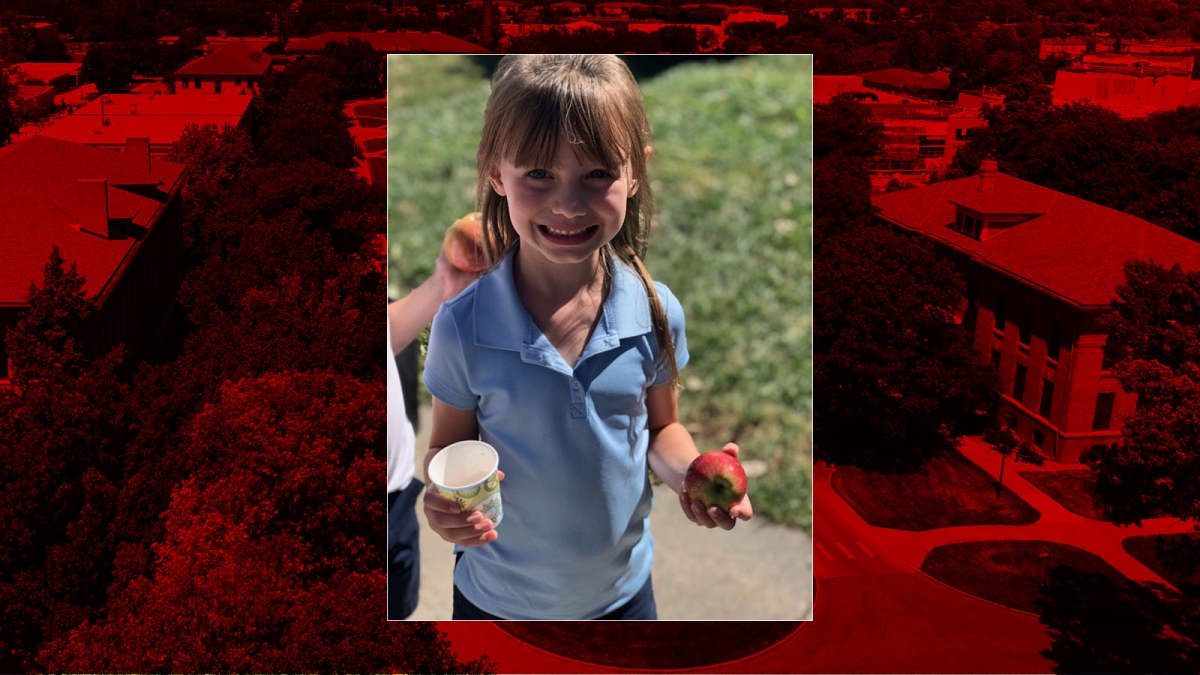by Brittany Fulton | Nebraska Extension

Image Source: Sara Wangler
Lincoln, Neb. —April 21st is National Kindergarten Day. Kindergarten is a German word meaning “children’s garden.” The name was coined by the German educator Friedrich Wilhelm August Froebel who created the first kindergarten in 1837.
Froebel admired Jean-Jacques Rousseau who held to the idea that all children are inherently good. Rousseau also stressed that frequent opportunities for natural expression would allow children to develop into well-balanced and free-thinking individuals. Building upon Rousseau’s ideas, Froebel designed his kindergarten to be a place for children to explore music, nature, stories, and play to enhance their development and help them transition to school.
Margarethe Schurz opened the first kindergarten in the United States in 1856. It was a German-speaking kindergarten in Watertown, Wisconsin. The first English-speaking American kindergarten was opened by Elizabeth Peabody in Boston in 1860.
At the Thirteenth Annual Session of The National Conference of Charities and Correction in 1886, Constance Mackenzie presented on the expansion and impact of free kindergarten in the United States. She shared responses to the question, “In what direction is the influence of the kindergarten most potent?” A summary of the responses in 1886 includes developing will power, training children to think, developing self-control, establishing habits, and teaching obedience. In short: building character.
Although kindergarten has changed since those first programs in the 19th century, the importance of nurturing children’s development through play has not. The developmental skills impacted by kindergarten, such as developing will power, creative thinking, and self-control remain relevant. Children learn these skills by engaging in play and open-ended exploration of materials and environments with teachers and classmates.
Ideas for celebrating National Kindergarten Day
We celebrate National Kindergarten Day on April 21, which was Froebel’s birthday. You can celebrate National Kindergarten Day in simple ways by providing opportunities, time, and materials for activities that promote play and exploration.
- Read books with children. Reading supports children’s learning and development on multiple levels. Try a book about kindergarten such as Miss Bindergarten Gets Ready for Kindergarten by Joseph Slate and Ashley Wolf.
- Spend time outside exploring what you see. Do not worry about a set plan for what you will do outside. Instead, be guided by what catches a child’s interest, whether that is a game or sport, a puddle of water, or finding shapes in the clouds.
- Sing songs or dance to music. Do you play an instrument? Invite children to move to a tune you play yourself.
- Act out stories with children, either from books or your own made-up scenarios.
- Thank a kindergarten teacher! Kindergarten teachers balance requirements around academic standards while nurturing an environment of play and wonder so that young children become creative thinkers, problem solvers, and socially competent citizens.
Do you know what school your child will attend?
If you have a child who has not yet attended kindergarten, contact your local school to confirm you are on their contact list. Ask if there is a kindergarten readiness event you and your child can attend. These events usually offer tours of the school, describe what children can expect, and facilitate time for children to meet future classmates.
Kindergarten may be a child’s first experience with school. The play-centered learning that happens in early childhood sets the stage for children’s ongoing enthusiasm for learning—so let’s celebrate kindergarten!